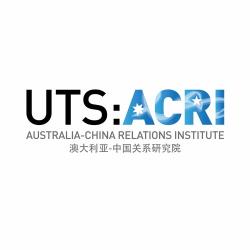Guest: Dr Tess Newton Cain, Adjunct Associate Professor, School of Political Science and International Studies, University of Queensland
Host: Elena Collinson, Senior Project and Research Officer, Australia-China Relations Institute, University of Technology Sydney
The Pacific has become much more central to foreign policy discussions in Australia over the last few years, with clear political bipartisanship on the need to forge closer ties with Pacific nations. Prime Minister Scott Morrison in November last year declared that Australia would ‘step up’ in the Pacific and take its engagement with the region to ‘a new level’. Opposition Leader Bill Shorten pledged in parallel that ‘a Labor Government will put the Pacific front and centre in our regional foreign policy’.
Australia’s increasing focus on the Pacific has come against the backdrop of increased engagement by the People’s Republic of China (PRC) with Pacific nations and Australian concerns about the regional balance of power.
What characterises Australia’s Pacific ‘step-up’, and how effective is it likely to be? What is the nature of the PRC’s engagement with the Pacific, and how effective is it? How have Australian and PRC initiatives been received by Pacific nations thus far? What scope might there be for cooperation between Australia, China, and Pacific nations in regional development?
Dr Tess Newton Cain joins Elena Collinson to discuss these questions and more. She notes that despite repeated insistence that the so-called ‘step-up’ is an end in and of itself, it is clear that an increase in Chinese diplomatic activity has precipitated a reassessment of Australia’s previous arguably complacent relationship with the region, and a growing awareness of the need for renewed, nuanced engagement with the Pacific.
There is a need for the greater understanding of nuances in Australia’s Pacific approach, including recognition that individual countries such as Vanuatu, Tonga, or Papua New Guinea face different developmental needs, and that Australian initiatives need to extend beyond sports diplomacy or even assistance with disaster response. This entails addressing key Pacific interests such as entry barriers for citizens of Pacific Island nations, and tangible commitment to the Boe Declaration, to which Australia is a signatory. In the absence of such recognition, any Australian effort risks being perceived as a condescending knee-jerk reaction to Chinese diplomacy, driven by domestic concerns rather than the espoused ‘vuvale’ (family) ties between Australia and its partners in the Pacific.
The PRC places far greater emphasis on direct bilateral ties than multilateral structures. Although aid – whether from the PRC or otherwise – is always tied to diplomatic objectives, it is evident that the PRC expects and does receive geopolitical benefits from its diplomacy in the region. These include support for the PRC on issues such as territorial claims in the South China Sea, or in the context of an intensifying geopolitical contest between China and Taiwan. Pacific island nations are aware of these expectations, and weigh them against the perceived expectations of societal change linked to Australian aid.
Meanwhile, the readiness of PRC diplomats and leadership to recognise the status of leaders from Pacific Island nations through ceremony, state banquets, and the ‘red-carpet treatment’ appeals to a level of cultural resonance in countries with strong hierarchical social systems such as Samoa, Tonga, or Vanuatu.
On PRC lending activities, while Pacific states like Vanuatu are unlikely to face the prospect of debt default in the near future, there nonetheless remain valid concerns over the quantity and nature of debt.
With respect to potential areas of trilateral cooperation between Australia, the PRC and the Pacific, a vital starting point is – again – developing a nuanced understanding of Pacific nations’ developmental objectives. There is, for example, already cooperation on a trilateral Australia-PRC-Papua New Guinea project for malaria eradication. Other areas may include transnational crime, which both the PRC and Australia have a vested interest in dealing with; climate change adaptation; and potentially infrastructure.
Summary written by Michael Zhou, Project and Research Officer, Australia-China Relations Institute, University of Technology Sydney.
Technical production by Amy Ma, Communications Officer, Australia-China Relations Institute, University of Technology Sydney.
Theme music by Sam J Mitchell.


